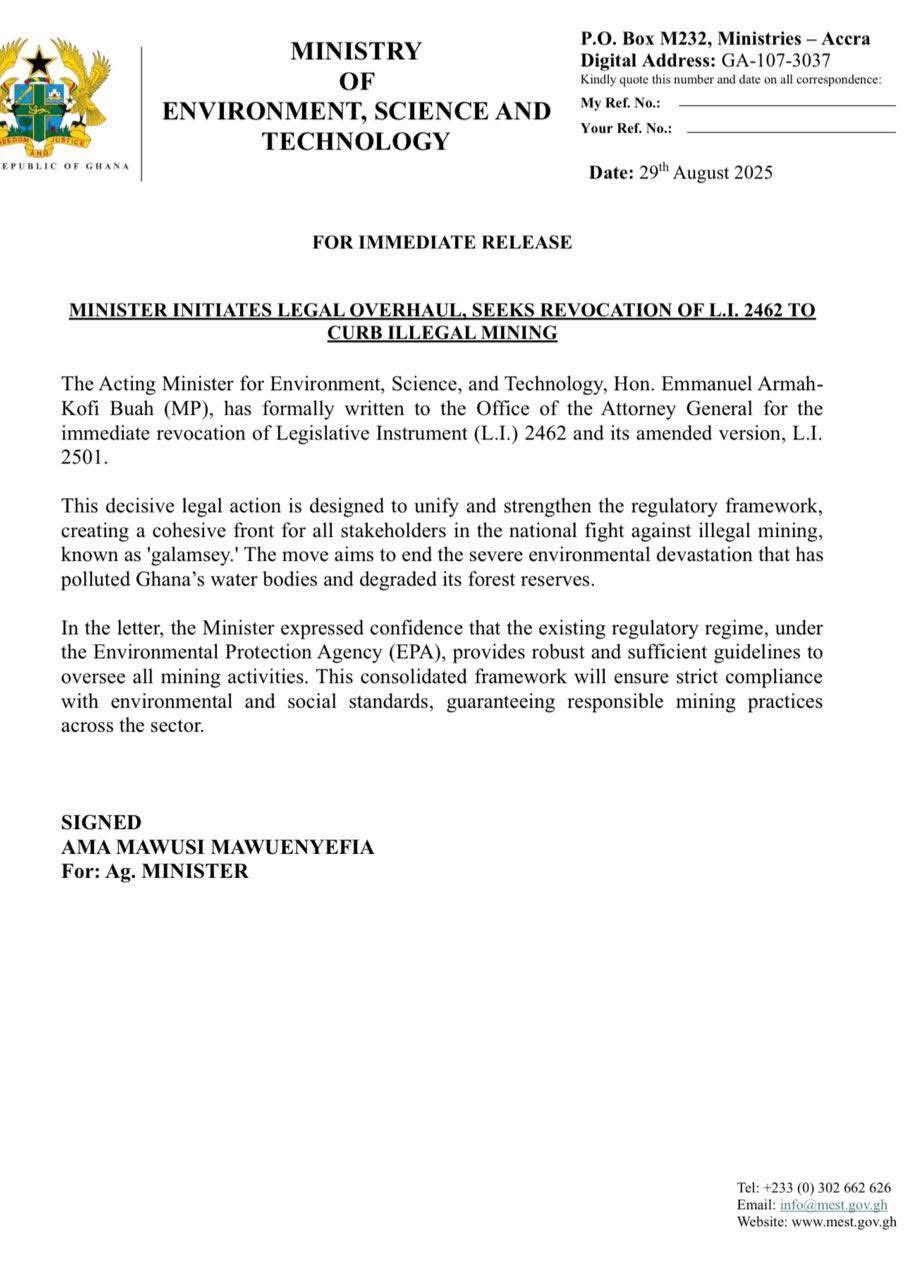
Ghana’s Environment Ministry Moves to Revoke Mining Law in Fight Against Illegal Mining

The Ministry of Environment, Science, and Technology has initiated a decisive legal overhaul aimed at curbing illegal small-scale mining, popularly known as galamsey.
Acting Minister Emmanuel Buah (MP) has formally requested the Attorney General’s office to revoke Legislative Instrument (L.I.) 2462 and its amended version, L.I. 2501, as part of a strengthened regulatory crackdown.

The Ministry said the action is designed to unify and reinforce Ghana’s mining regulations, creating a cohesive framework for all stakeholders in the fight against galamsey. The unregulated activity has polluted rivers, degraded forests, and destabilised communities, drawing both national and international concern.
Illegal small-scale mining remains one of Ghana’s challenges. Earlier reports highlighted how galamsey continues to expose children to hazardous labour, leaving long-term economic, social, and health consequences. Crude mining practices have scarred Ghana’s landscape, turning once-arable land into wastelands while contaminating water sources.
West Africa Weekly reported in 2024 that hundreds of Ghanaians staged a peaceful protest in Accra, demanding stronger government action against illegal gold mining. Protesters carried placards reading, “Greed is killing Ghana,” and “Gold for the few, destruction for the many,” as they called for stricter enforcement measures.
Driven by rising gold prices and widespread poverty, galamsey has lured more than a million informal workers who together produce over two million ounces of gold annually. The practice accounted for about 30 per cent of Ghana’s total gold output. However, its environmental toll, including deforestation, polluted rivers, and abandoned pits, has been devastating.
In his statement, Buah expressed confidence that the Environmental Protection Agency (EPA) possesses the capacity to regulate mining effectively under a new framework.
He said the move will ensure strict compliance with environmental and social standards, safeguarding responsible mining practices across the sector.
5 Facts About Onyinyechi Basil, Miss Universe Nigeria 2025
About The Author
Related Articles
Asake Sets New Billboard Afrobeats Record as Chart Presence Grows
Asake has further cemented his place as one of Afrobeats’ most dominant...
ByWest Africa WeeklyJanuary 29, 2026Nigerians Lament PayPal’s Return as Old Wounds Resurface
PayPal’s reentry into Nigeria through a partnership with local fintech company Paga...
ByWest Africa WeeklyJanuary 29, 2026Tanzania Eyes Gold Sales as Aid Declines and Infrastructure Needs Grow
Tanzania is weighing plans to sell part of its gold reserves to...
ByWest Africa WeeklyJanuary 29, 2026Mali Tightens Grip on Explosives Supply With New Majority Stake
The Malian government has taken majority ownership of a civil explosives manufacturing...
ByWest Africa WeeklyJanuary 29, 2026












Leave a comment